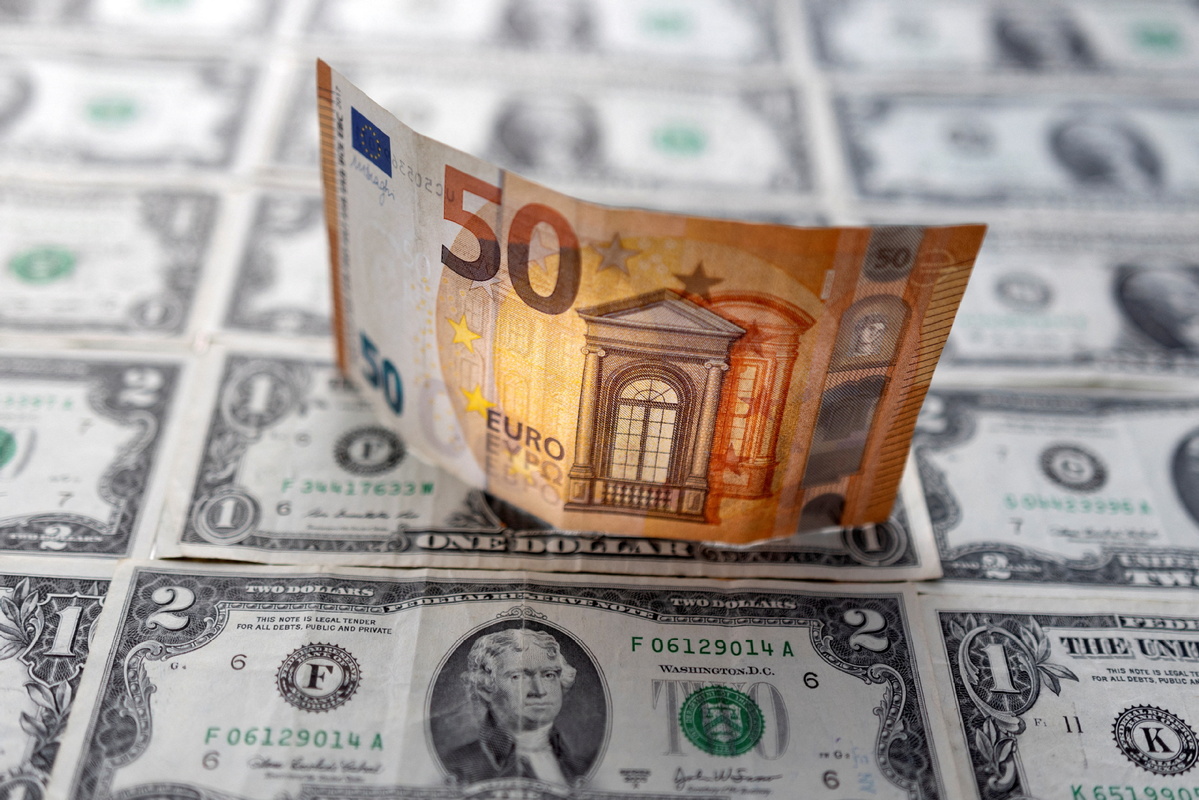Euro could fall to parity with US dollar as fears of recession increase
By JONATHAN POWELL in London | China Daily Global | Updated: 2022-05-12 09:16

Money market traders predict that the reluctance of the European Central Bank, or ECB, to tighten inflation-fighting policy in line with the United States Federal Reserve, could push the euro down to parity with the dollar, a level unseen since 2002.
Some 60 percent of respondents to Bloomberg's latest MLIV Pulse survey expect the euro will eventually end up level with the dollar. It noted that some 40 percent of respondents fear a eurozone recession more than inflation.
The looming threat of a recession means the ECB will prioritize keeping control of government borrowing costs over lifting interest rates above zero, according to Amundi, Europe's largest asset manager.
In an interview with the Financial Times, Vincent Mortier, chief investment officer at Amundi, said the euro would fall in line with the US dollar this year.
"We are facing lower growth or probably a recession in the eurozone," Mortier said. "We see the euro at parity (with the dollar) in the next six months."
Mortier said the ECB's priority was the preservation of "the integrity of the eurozone" by "limiting the gaps in borrowing costs between member states, and supporting economic growth".
Amid soaring inflation, Mortier said opposition to an interest rate increase among some members of the ECB's governing council had been softening in recent weeks.
Mortier said he expected just two quarter-point increases from the ECB from the present historic low of minus 0.5 percent, though the FT noted that "money markets are currently pricing in at least three such increases in 2022 and a further rise to roughly 1.5 percent by mid-2024".
The US Fed has already raised its interest rate by 0.75 percentage points this year and is expected to continue tightening its policy, say economists.
The FT said the euro had stabilized near a five-year low of $1.047 in late April, "after a fall that came as markets had been preparing for a series aggressive interest rate rises from the Fed".
"We think they'll get to zero on the (ECB) deposit rate and that's it," Mortier said. "In the meantime the Fed will have done much more. If the ECB were focused only on inflation, then 1.5 percent would be very likely. But it's not."
The dollar hit a two-decade high last week, and its strength is tightening financial conditions just as the world economy confronts the prospect of a slowdown, said the Reuters news agency.
Samy Chaar, chief economist at Lombard Odier, told Reuters that the soaring value of the US currency threatens "to damage the broader market environment and expose the economic and financial cracks in the system".
























